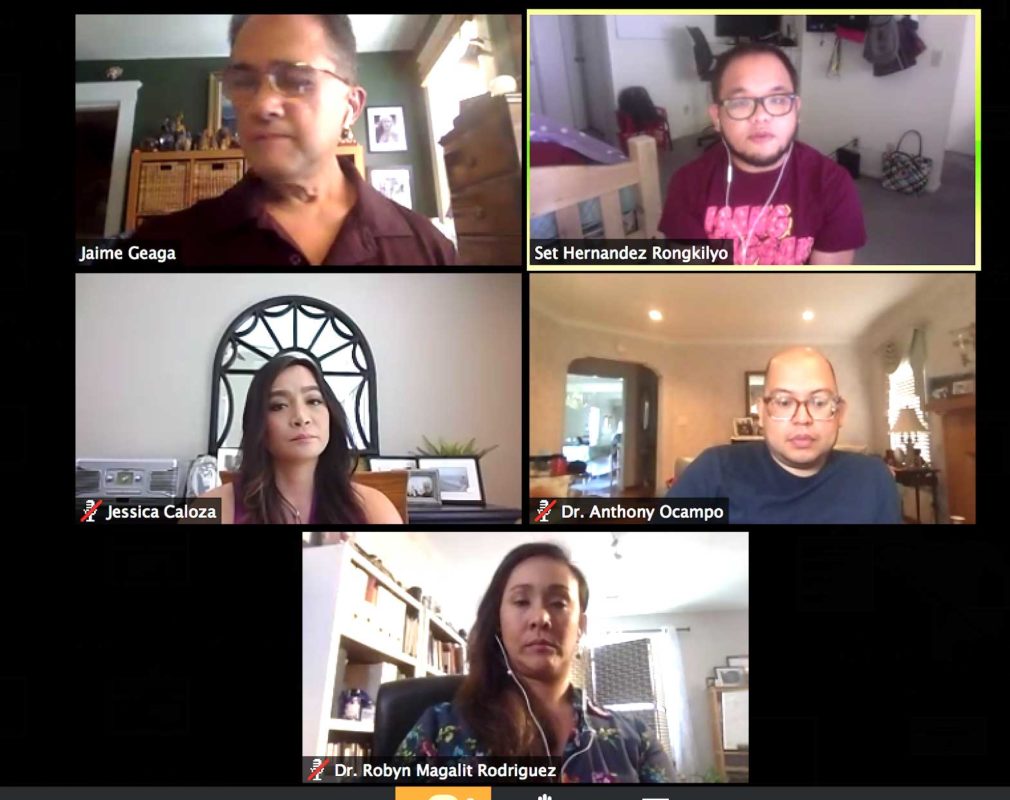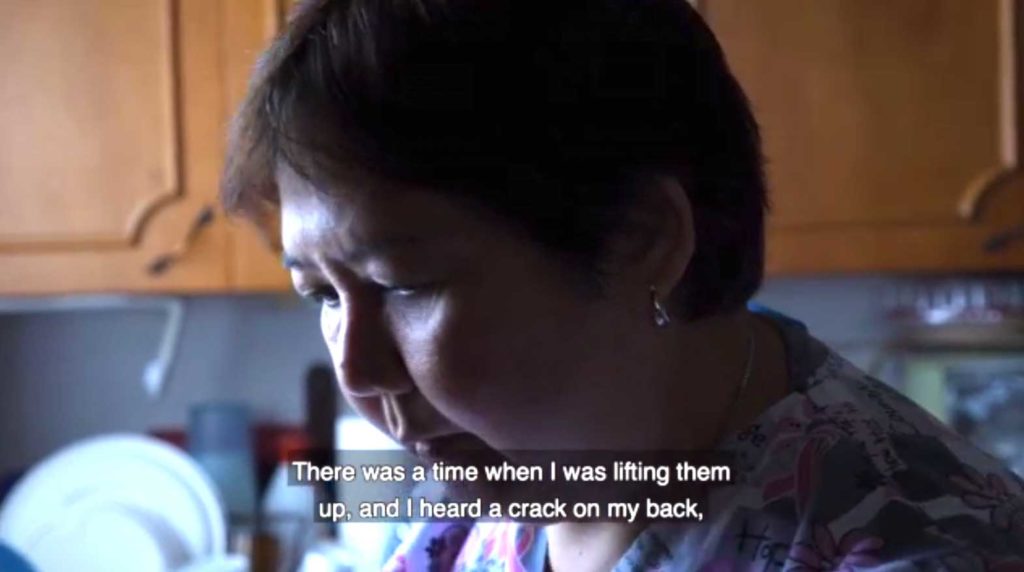Fil-Am leaders weigh-in on pandemic’s impact on immigrants

PALAD Merienda Series Webinar screenshot.
LOS ANGELES—“We have to think about Covid-19 as an immigration issue,” declared Dr. Anthony Ocampo, assistant professor of sociology at Cal Poly Pomona.
“Given what’s going on with Filipino nurses today, given what we know about (their) role during the AIDS epidemic, when it comes to public health we can’t disaggregate it from being an immigration issue.”
Ocampo was among the panelists at the Pilipino American Los Angeles Democrats’ Virtual House Party: Merienda Series “Filipinos Lead in Immigration” on May 23 in commemoration of Asian Pacific American Heritage Month.
On the panel with him were Set Hernandez Rongkilyo, video producer with the California Immigrant Policy Center, and Dr. Robyn Magalit Rodriguez, founder of the Bulosan Center for Filipinx Studies at UC Davis.
“This is our way of drawing attention to and sharing more insights about the different issues that impact our community,” PALAD President Jessica Caloza said of the online panel.
Ocampo noted that Filipino immigrants, health care front liners in the pandemic are vulnerable to the negative effects of anti-immigrant political rhetoric. Many have succumbed to the coronavirus while working in the United States.“We’ve been so accustomed to seeing how Filipinx Americans have been a part of the support infrastructure of this country,” Ocampo added.

Screen grab of Filipino caregiver in ”COVER/AGE” film.
Rongkilyo, a DACA recipient, addressed issues of health care insurance coverage and Deferred Action for Childhood Arrivals.
A great number of Filipino Americans work in the health care industry, including the Filipina caregiver with no health insurance in his film “Cover/Age,’’ which features advocates for health care access as a right for all in California, regardless of immigration status. Less than 10 percent of Filipinos with legal immigration status do not have health insurance.
“What we need now more than ever is really action rooted in solidarity to build better infrastructure so that all people have access to care whether it is during a pandemic or not,” said Rongkilyo.
“You’re probably familiar with DACA and that our community is currently awaiting a decision from the Supreme Court on whether this program is constitutional or not and whether the Trump administration has the power to end this program or not,” Rongkilyo noted.
According to Migration Policy Institute: “In 2017, approximately 18,000 Filipino unauthorized immigrants were immediately eligible for the 2012 Deferred Action for Childhood Arrivals (DACA) program. However, as of January 31, 2018, just under 3,800 Filipinos were active participants, according to U.S. Citizenship and Immigration Services (USCIS) data.”
He also sees a need for improved communication within the Filipino community when it comes to immigration issues. “How can we talk to conservative Filipinos? How can we talk to Filipinos who might be against immigration reform?’’
Rodriguez highlighted survey data on the impact of the coronavirus pandemic on Filipino immigrants in California. “From our survey, we see that almost 40% of households we’ve interviewed didn’t have just nurses, but other health care professionals,” she reported. “In terms of our respondents [of the survey], 95% have not been tested for Covid-19.”
She noted that “60% of the members of the households who responded are essential workers and have to leave home for work. Those who are employed say that their employer does not provide adequate Personal Protective Equipment.”
Filipinos who are trying to stay safer-at-home are just as vulnerable to coronavirus. The survey results indicate, “About 40% of our respondents are individuals that have an increased risk for Covid-19 or complications due to it.”
Survey results also show a pandemic impact on mental health: “About 89% of respondents are reporting anxieties that they have attributed to Covid-19.” And “17 percent have underlying mental disorders that we can imagine are being exacerbated by the [Covid-19 pandemic] conditions we are living in,” Rodriguez reported.
Rodriguez and the Bulosan Center are encouraging more Filipinos to join their ongoing survey to about the impact of Covid-19 on the Filipino American population: tinyurl.com/filipinxscount
PALAD Vice President of Programs Bianca Nepales Gervacio, said, “I hope viewers feel a stronger sense of community, gain knowledge about critical issues facing Filipino Americans, and get involved during the upcoming presidential elections in November. This is what democracy looks like in action.” Gervacio.
For more information about PALAD, please go to https://www.palad.org

